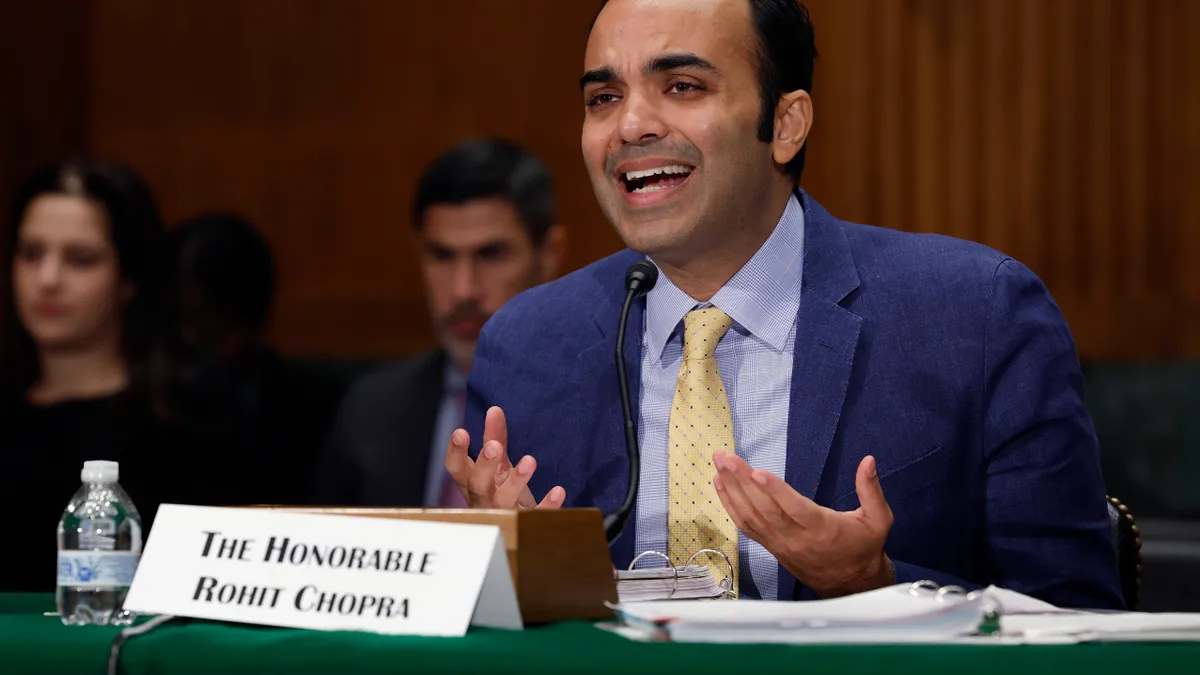The Consumer Financial Protection Bureau issued a proposed rule Wednesday that would stop banks and other financial institutions from levying nonsufficient funds fees on transactions declined in real time.
The proposed rule would ban NSF fees on declined debit purchases, ATM withdrawals and some peer-to-peer payments.
This type of fee is uncommon, making the proposal proactive.
“Over the years, large banks and their consultants have concocted new junk fees for fake services that cost almost nothing to deliver,” CFPB Director Rohit Chopra said in a prepared statement Wednesday. “Banks should be competing to provide better products at lower costs, not innovating to impose extra fees for no value. The CFPB will continue to rid the market of junk fees today and prevent new junk fees from emerging in the future.”
Typically, when a real-time transaction is declined, customers are either hit with an overdraft fee or the purchase is simply declined. NSF fees are typically only charged for fees that are processed and declined, like checks or Automated Clearing House transactions.
But as technology advances, the CFPB asserts that financial institutions may be able to block more transactions in real time, at the swipe, tap or click.
The consumer watchdog — and the Biden administration as a whole — has been waging war on “junk fees” since 2022. Numerous banks around that time reduced or eliminated both NSF fees and overdraft fees, resulting in $3.5 billion in savings on overdraft fees annually and $2 billion in savings on NSF fees, the CFPB found.
The real-time NSF ban proposal comes soon after a separate rule proposed by the CFPB to reduce overdraft fees levied by big banks to between $3 and $14 per transaction.
Consumer Bankers Association CEO Lindsey Johnson said the CFPB’s real-time NSF ban proposal is misleading.
“The CFPB’s proposed rule is marked departure from the agency’s previous disclosures about the rulemaking, in that the proposal would only impact transactions that are declined ‘instantaneously or near-instantaneously.’ It would explicitly not cover check and ACH transactions,” she said. “Accordingly, we will work with our members to understand what, if any, business practices would actually be impacted by the Bureau’s rulemaking.”
A comment period on the proposal is open through March 25.
Johnson, for one, inferred Wednesday’s proposal smacks of attention-seeking.
“Although the rulemaking acknowledges that ‘many financial institutions in recent years have stopped charging NSF fees,’ the agency relies heavily on ten-year-old data to justify the creation of yet another rule,” she said. “CBA looks forward to working constructively with our regulators, beyond what appears to be its recent clamoring for headlines, to seek solutions to problems that American consumers are actually facing as they try to make ends meet.”













